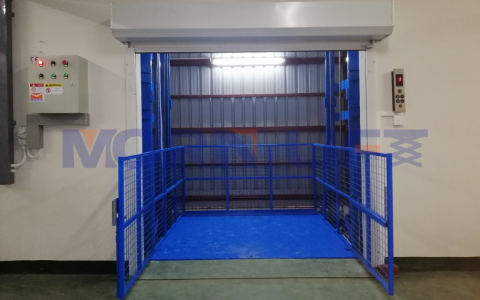Alright, let’s talk about them big ol’ lifty things, the ones they call hydraulic freight elevators. You know, the ones that haul stuff up and down, not people. They’re important, gotta keep ’em runnin’ right, or else you’re stuck with a whole lotta stuff and nowhere to put it.
First thing’s first, you gotta keep an eye on these things. Like, every day. Just look it over, see if anything’s lookin’ wonky. Check them cables and pulleys, make sure they ain’t frayed or worn out. If somethin’ looks off, don’t go fiddlin’ with it yourself, get someone who knows what they’re doin’. It’s like when the tractor’s makin’ a funny noise, you don’t just start yankin’ on wires, right?
Now, these elevators, they got a whole bunch of parts movin’ around, so you gotta keep ’em greased up. Just like the wagon wheels back in the day, if you don’t grease ’em, they start squeakin’ and grindin’ and then they break. So, lubrication, that’s what they call it, it’s important. Keeps everything runnin’ smooth like butter.
- Daily Checks: Look for wear and tear, you know, like scratches and dents.
- Lubrication: Keep all the moving parts greased up.
- Safety Testing: Make sure all the safety stuff is workin’, like the brakes and the emergency stop.
And speakin’ of safety, that’s a big deal. These elevators, they’re carryin’ heavy stuff, so you gotta make sure they ain’t gonna drop it on nobody. So, they gotta do these security tests, make sure the brakes are workin’, the emergency stop is workin’, all that stuff. It’s like checkin’ the brakes on the truck before you head down a big hill, you don’t wanna end up in the ditch.
Now, these elevators, they work hard, so they need fixin’ up every now and then. It’s like the old plow, you gotta sharpen the blade and tighten the bolts every so often. So, after about 1500 hours of workin’, they gotta do some minor repairs, you know, fix the little things. Then, after 5000 hours, they gotta do some bigger repairs, and after 10,000 hours, they gotta take the whole thing apart and fix it up good. That’s what they call an overhaul.
And when they’re fixin’ these elevators, they gotta check everything. The doors, the lights, the frame, the rails, the cables, everything. It’s like when you’re fixin’ the barn roof, you don’t just patch one hole, you gotta check the whole thing, make sure it ain’t leakin’ everywhere else.
Also, them doors gotta be checked good. They gotta open and close right, and the space between the doors and the floor gotta be just right, so nobody trips or nothin’. It ain’t like the screen door on the porch, that you can just slam shut. This here’s gotta be precise.
And keep it clean! You know, like how you gotta keep the chicken coop clean, or else you get diseases. Same with these elevators. If dirt gets in the wrong places, it can mess things up. Especially on them parts that rub together, gotta keep ’em clean. Friction surface, that’s what they call it, shouldn’t have no dirt on it.
So, that’s the long and short of it. You gotta take care of these freight elevators, keep ’em clean, keep ’em greased, and keep ’em checked. They ain’t gonna last forever, but if you treat ’em right, they’ll last a good long time and get your work done. It ain’t rocket science, just good common sense, like takin’ care of anything else you got.
And remember, safety first! Don’t try to be a hero and fix somethin’ you don’t know how to fix. Get someone who knows what they’re doin’. It ain’t worth gettin’ hurt over.
After all, these hydraulic freight elevators are important in a lot of places where you need to move heavy things. You want them to work and you want them to be safe. It’s all about using them right and keeping them up so they keep on working right.
Tags: Hydraulic Lift, Freight Elevator, Maintenance, Safety, Inspection, Repair















